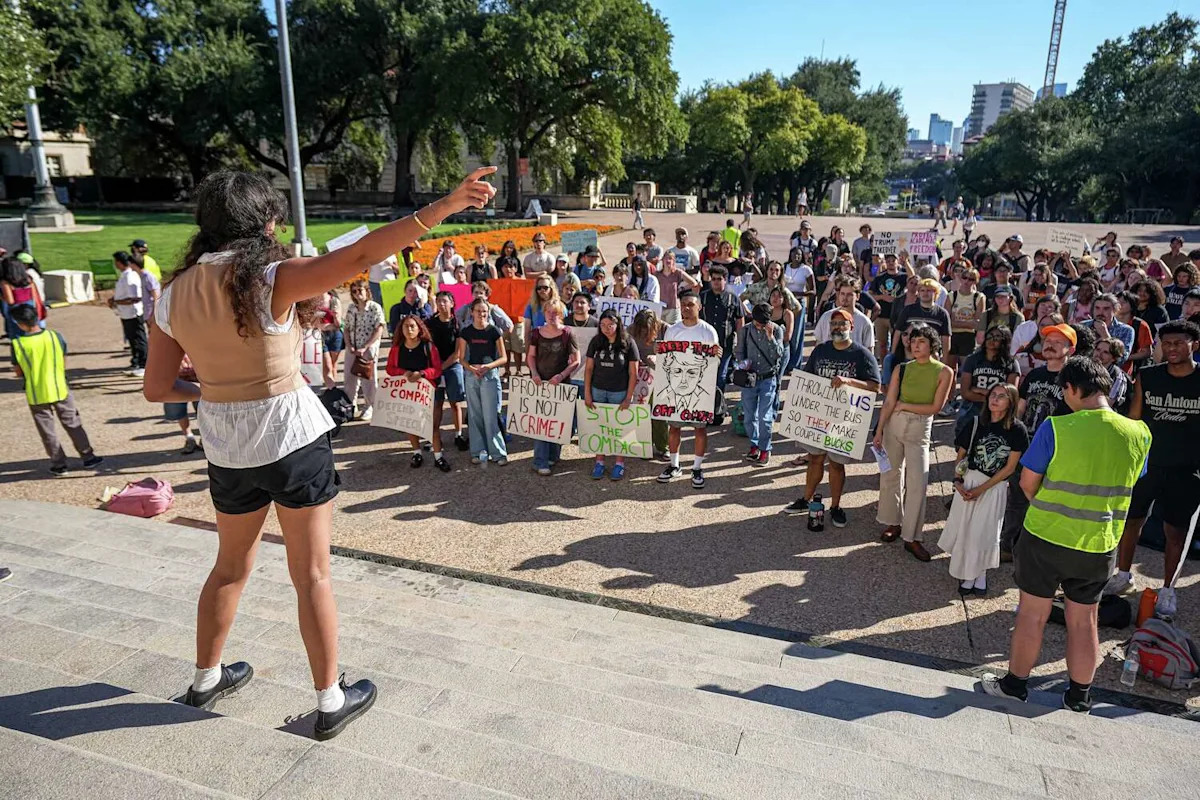A U.S. district court temporarily halted the University of Texas System’s enforcement of a new free speech law, siding with students who say its limits are overly broad and restrictive.
The decision, filed Tuesday afternoon after a hearing earlier this month, said the Campus Protection Act, or Senate Bill 2972 by Sen. Brandon Creighton, is likely in violation of the first amendment, particularly its end-of-term restrictions on expressive activities, guest speakers and amplified sound. Creighton previously served as the chairman of the Senate Education K-16 Committee and was recently named the chancellor of the Texas Tech University System.
Creighton and the University of Texas System did not respond to request for comment by press time.
Senate Bill 2972 passed after pro-Palestinian protests on Texas campuses resulted in more than 150 arrests and roiled conservative lawmakers, who accused the protesters of being disruptive and anti-Semitic despite protesters saying their speech was peaceful.
Creighton previously said the act regulated free speech to better protect students on campus, while still upholding the First Amendment. The law notably undiad bipartisan protections that lawmakers passed in 2019 to classify all university open spaces as traditional public forums for any member of the public.
A coalition of University of Texas at Austin and University of Texas at Dallas students, represented by the Foundation for Individual Rights and Expression, sued the system for its enforcement of the law. The coalition argued the legislation’s tight regulation of “expressive activities” could include publishing news, holding vigils, hosting music events or wearing T-shirts with political messages.
UT received pushback for stating Austin Street Medics, a volunteer organization offering medical help at local protests, could not be on campus if they were not students, due to the new law that strips protections from non-students attending campus protests.
U.S. District Judge David Ezra’s 52-page ruling orders the UT System to no longer enforce the overnight expression ban, end-of-term drum and amplified sound ban and end-of-term speaker ban. The preliminary injunction only impacts the UT System, a FIRE attorney confirmed.
“Texas’ law is so overbroad that any public university student chatting in the dorms past 10 p.m. would have been in violation,” said FIRE senior attorney Adam Steinbaugh in a news release. “We’re thankful that the court stepped in and halted a speech ban that inevitably would’ve been weaponized to censor speech that administrators or lawmakers found objectionable.”
This is a developing story and will be updated.

